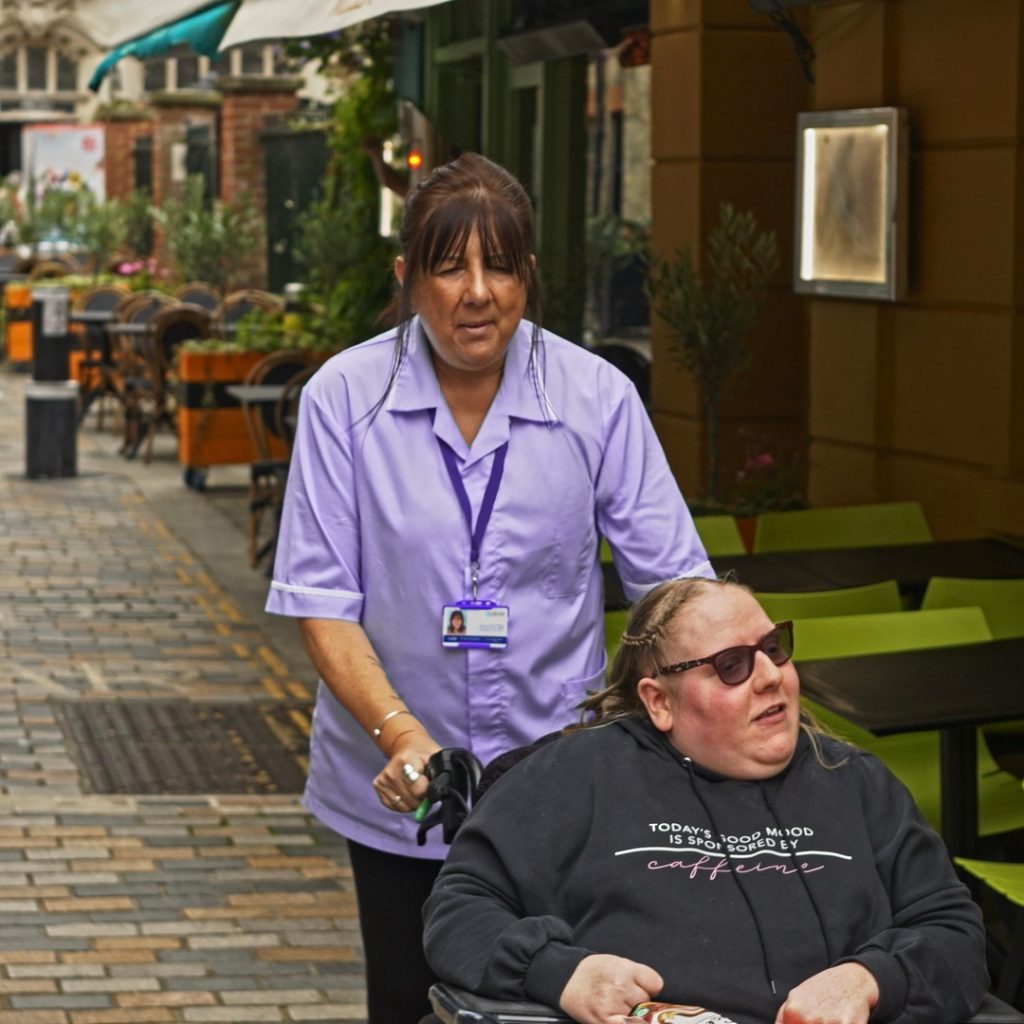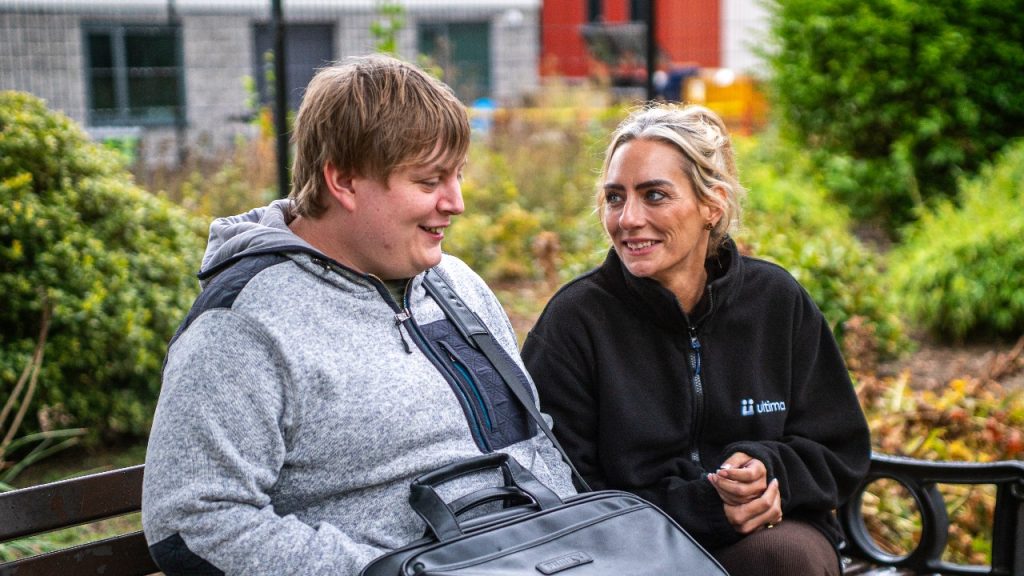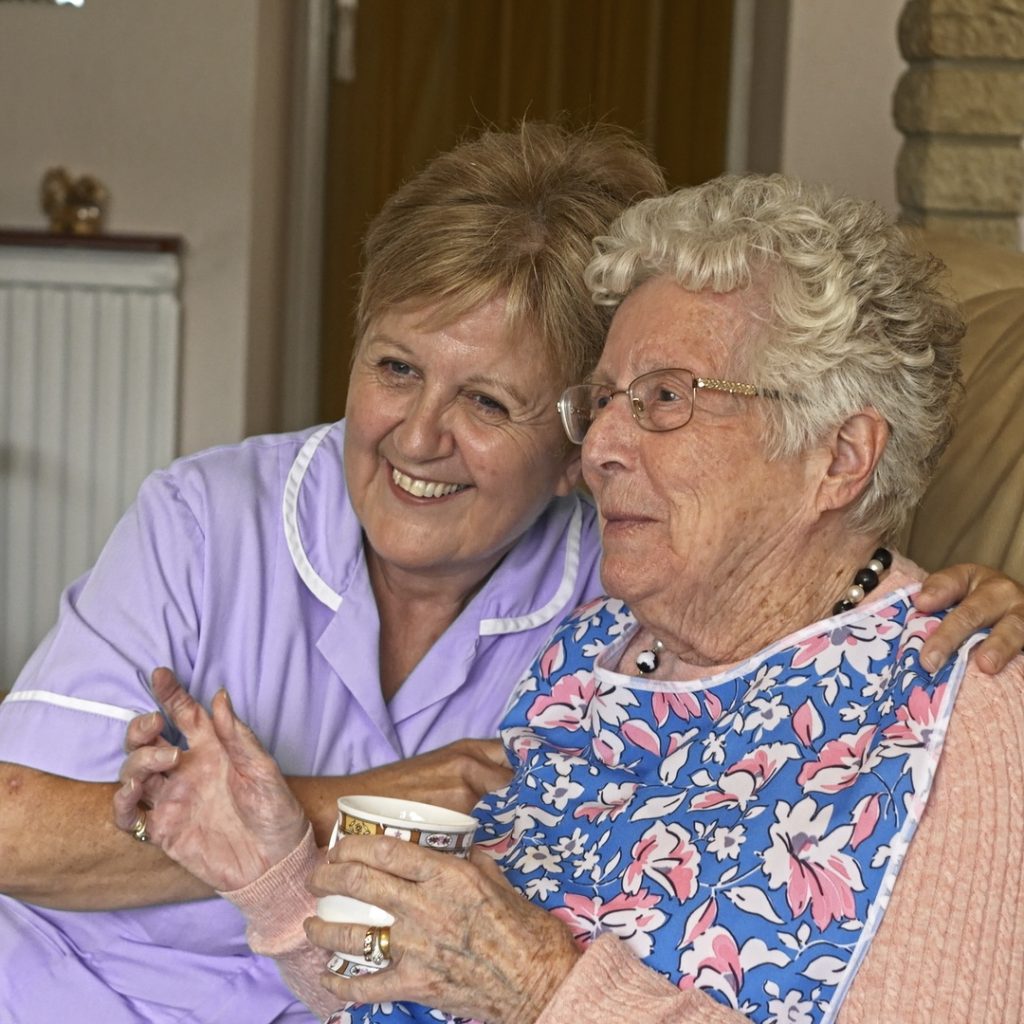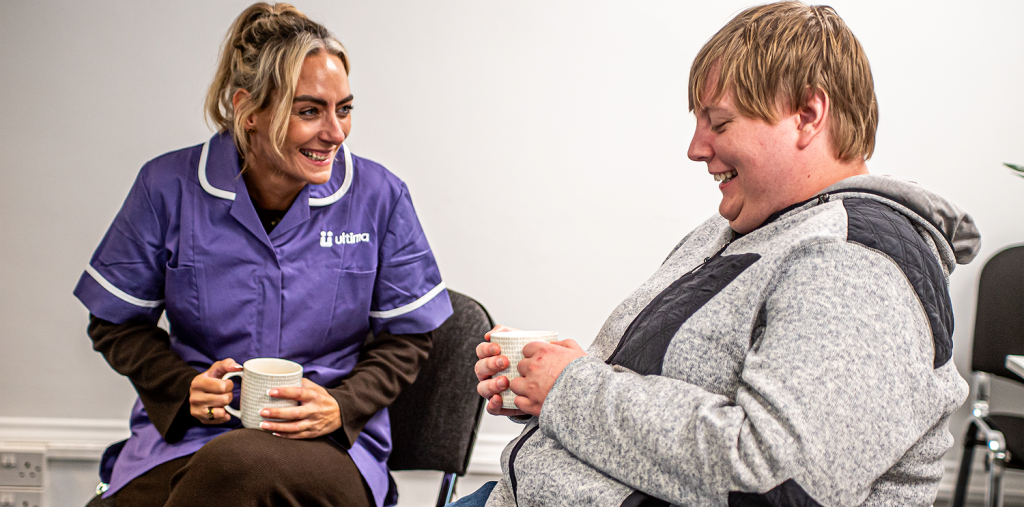Complex needs.
Compassionate care.


Specialist care.
Designed around you.
Our experienced team provides compassionate, person-centred support for those with complex needs. Whether you require live-in care, respite, or specialist clinical assistance, we’re here to deliver consistent, trusted care that adapts to you.
Our approach is built on understanding and collaboration — working closely with individuals, families, and healthcare professionals to create tailored care plans that promote safety, comfort, and independence.
With Ultima Care, you can trust that every detail is handled with expertise, empathy, and dignity.
Complex care, shaped around you.
Unsure what care
is right for you?

A standard of care you can trust.
Questions & Answers.
What do you mean by “complex care”?
Complex care refers to specialist, high-dependency care in the home or supported living settings. It includes medical and clinical tasks, equipment management (e.g. ventilators, tracheostomies, feeding tubes), spinal injury care, high-risk medication administration, and care for clients with multi-system needs.
Who is eligible for complex care?
Anyone whose needs exceed the scope of standard homecare or personal care services. This may include individuals with advanced neurological conditions, spinal or brain injury, ventilator dependence, multi-organ support needs, or combinations of serious chronic illnesses requiring professional oversight.
How do you assess a client’s suitability for complex care?
We begin with a comprehensive clinical assessment, reviewing medical history, diagnostics, equipment needs, risk factors, and current care environment. We often work in consultation with the client’s physicians, therapists, and other health professionals to determine feasibility and plan.
How quickly can complex care services begin?
That depends on the clinical complexity, equipment procurement, staffing, and location. For many cases, we can mobilise within a few days; more acute or specialised setups may take longer. We’ll provide a realistic timeline during planning and maintain open communication throughout.
What kinds of clinical tasks can your carers perform?
Our highly trained clinical team can handle tasks such as:
• Ventilator management and monitoring
• Tracheostomy care
• Tube feeding (e.g. PEG, NG)
• Central line and catheter care
• Wound management and pressure area care
• Administration of injectable medication (as allowed by protocols)
• Complex medication regimes and titrations
• Monitoring of vital signs, oxygenation, suctioning, respiratory support
• Coordination with clinical teams, alarms, and emergency response
All tasks are performed under rigorous protocols and regulatory compliance.
How do you ensure the safety and reliability of clinical equipment?
We maintain strict protocols for equipment sourcing, maintenance, calibration, and inventory. All equipment is regularly inspected, tested, and backed by vendor support. Staff are extensively trained in use, troubleshooting, and emergency fallback procedures.
What is the staffing structure for complex care?
We deploy a mix of registered nurses, clinical care assistants, and specialist therapists as needed. Each client will have a care team, a lead clinical coordinator, shift handovers, clear escalation procedures, and backup cover to maintain continuity.
How do you manage risk, emergencies, and crisis situations?
We create detailed risk assessments, emergency response plans, alarm protocols, and escalation pathways (e.g. liaising with hospitals, 999). Staff receive training in emergency drills, incident reporting, and rapid decision-making under supervision. Regular reviews refine protocols over time.
How do you coordinate with hospitals, clinicians, and multidisciplinary teams?
We engage in shared care, attend discharge meetings, exchange clinical information, join case reviews, and align with existing care plans. Our clinical leads liaise with your medical team to maintain oversight and seamless transitions.
What about around-the-clock or live-in clinical care?
For clients needing 24/7 clinical support, we design live-in or continuous overnight models, with staff rotation, shift management, and overlap periods to ensure no gaps in clinical coverage.
How do costs work for complex care?
Due to higher levels of expertise, specialized staff, equipment, monitoring, and oversight, costs are greater. We’ll provide a detailed proposal including staffing, equipment amortization, clinical oversight, consumables, travel or remote monitoring, and coordination. For institutional or block contracts, we’re open to negotiated terms.
Can complex care evolve if clinical needs change?
Yes. We anticipate that needs might evolve (either increase or decline). The care plan is reviewed frequently, and we can adjust staffing, interventions, or even transition to lower-level services when appropriate — maintaining dignity and continuity.
What safeguards are in place for quality and compliance?
We uphold high clinical governance standards: audits, supervision, incident review, root-cause analysis, quality improvement, external accreditation, staff competence assessments, and stakeholder feedback. Safety and compliance are non-negotiable.
What support do you offer to families and caregivers in complex care scenarios?
We provide education, emotional support, regular updates, caregiver respite options, guidance on equipment use, and active involvement in care planning. We recognise the stress and burden, and aim to be partners.
How do I get started if I believe complex care is needed?
Contact us via phone, email, or the “Talk with us” form. We’ll arrange an initial consultation, collect medical and care history, liaise with any existing clinical teams, conduct assessments, and propose a care plan tailored to your precise needs.
What geographic area do you serve for complex care?
We currently deliver complex care across Kent (or your operating region). If the client is just beyond our typical zone, contact us — we may arrange coverage or collaborative solutions in some cases.
How can we help you?












